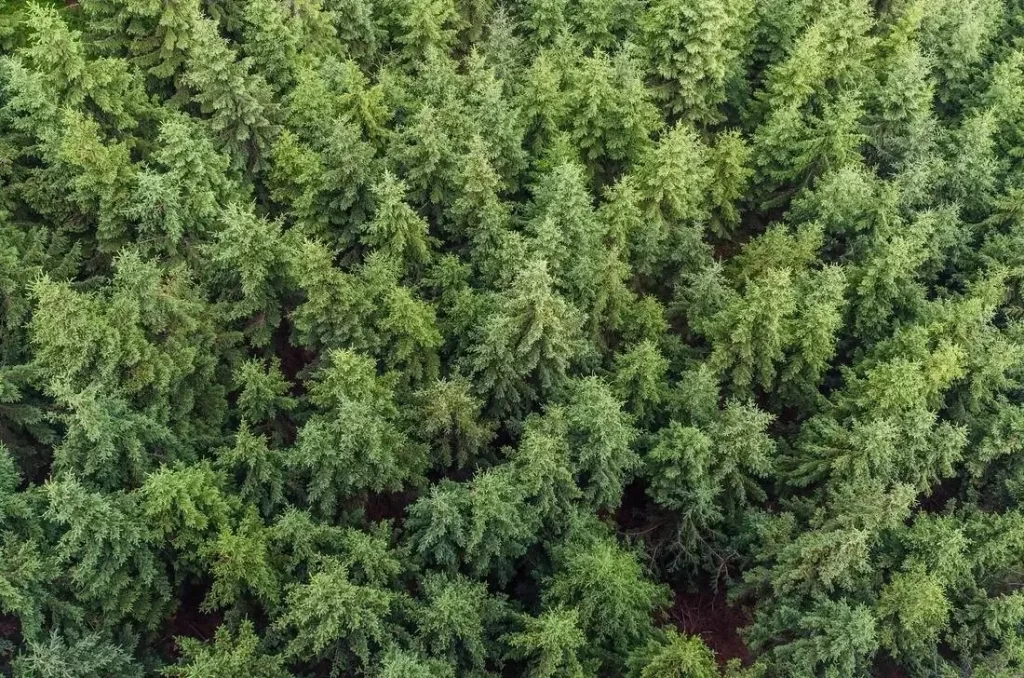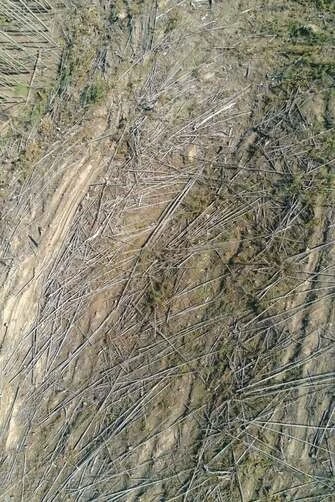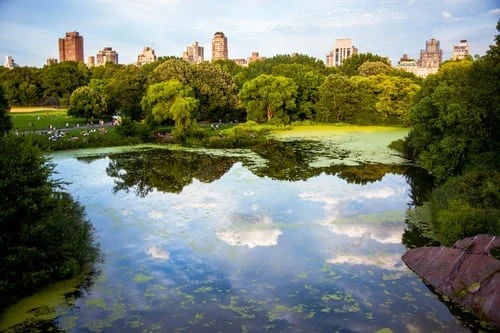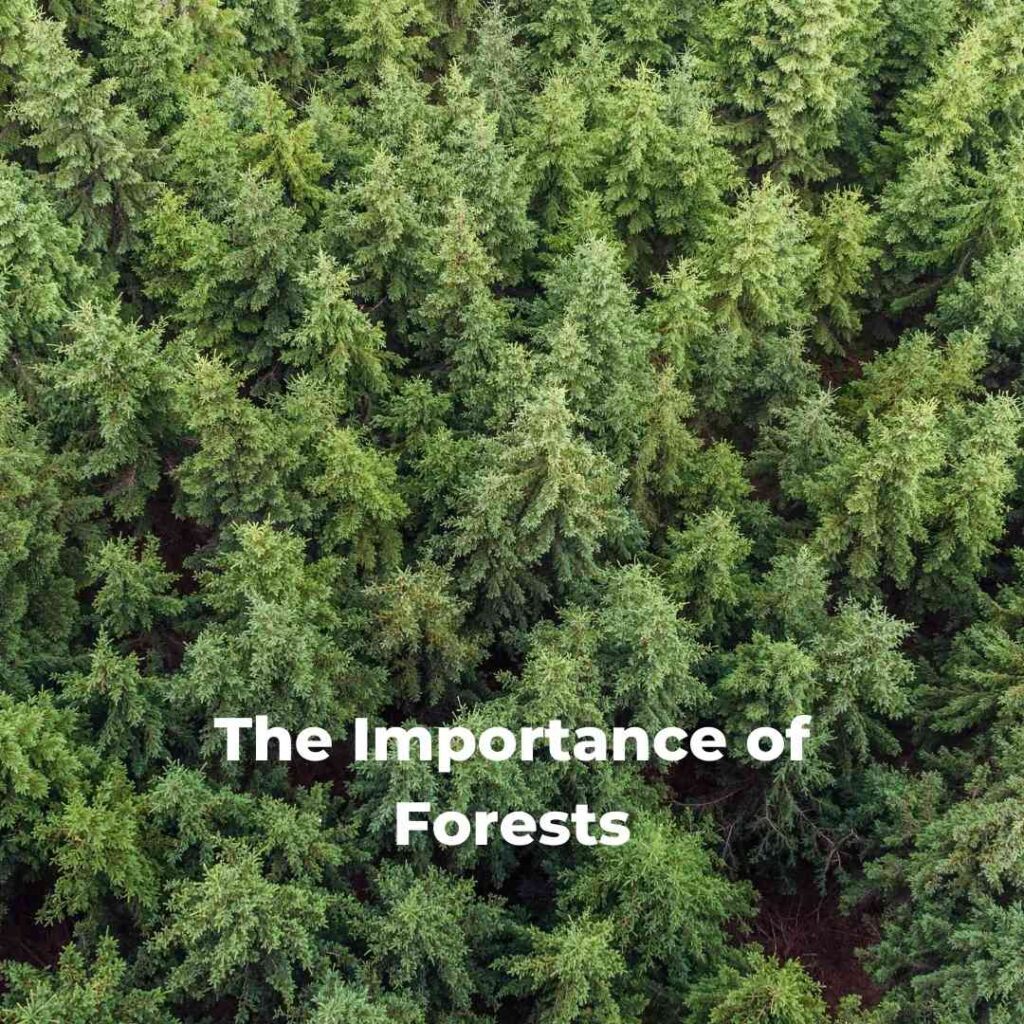So poignant as a virus that causes humans to experience deathly shortness of breath sweeps the world. Yet, as I write this at 10:30am, a deforestation counter shows that over 33 000 hectares of forest have been cut or burned across the world today.
Forests are incredibly important to preserve as a means to slow climate change, for many more reasons than air quality. Preserving forests tackles climate change, global warming, the biodiversity crisis, desertification and drought, air and water pollution.
Trees ‘breathe’ out the oxygen that we breathe in, providing much of the oxygen that most organisms on Earth need for survival. They also improve the quality of the air by absorbing polluting gases through their leaves. A 2010 estimate stated that trees and forests removed 17.4 million tonnes of air pollution in the United States – monetising the human health effects to be worth $6.8bn. Besides reducing pollution, forests and urban trees also balance air temperature – cooling cities and reducing the need for fossil fuel powered temperature-control devices and improving day-to-day quality of life for humans, animals and insects.

Effortless Earth guardians:
Trees absorb the all-important Carbon Dioxide simply by breathing; they are the second-largest carbon stores on Earth, after the oceans. Trees store this carbon in their trunks as a structural component and when they die and rot, it becomes new soil. Beautiful carbon sequestration. A quarter of a trillion tonnes of carbon is stored in the biomass of the world’s tropical forests alone. Cutting and burning of these forests releases large amounts of carbon back into the air, exasperating the greenhouse effect that is causing Earth to warm at an alarming rate – with the clearing of tropical forests contributing about 20% of the world’s total greenhouse gas emissions.
It is well known that forests create rain locally through evaporation and transpiration but, a Russian physicist has claimed that forests also create rain in areas far from where they are situated as well as creating the wind that carries the rain clouds. The theory states that coastal forests create wind that pulls moisture off the ocean, adding it to their own evaporation clouds and sending it to form rain inland. Therefore, the loss of these forests would cut off inland water supply – creating and spreading deserts. “Forests are complex self-sustaining rainmaking systems, and the major driver of atmospheric circulation on Earth,” Anastassia Makarieva says. Atmospheric jets or ‘flying rivers’ send water from huge forests like the Amazon, to inland areas – where they are stopped by mountains and fall as life-giving rain. The Amazon flying river is thought to carry as much water as the more visible, terrestrial river below it.
Yet, 11,088 sq km of Amazon rainforest were destroyed from August 2019 to July 2020.

Besides controlling weather across the globe, forests also stabilise land masses – preventing erosion, they filter water and slow it down – preventing flooding, indigenous and old-growth forests stop fires and slow down winds close to the land, whilst providing important habitat, food and medicine for people, animals, insects, fungi and smaller plants.
80% of Earth’s land-based biodiversity is housed in forests, as well as the 60 million indigenous people that call them home. Deforestation is seen as one of the main reasons for us entering the Sixth Mass Extinction, and we may be reaching a ‘tipping point’ where forests begin to decline on their own due to the sheer mass of human-led destruction that has already occurred.

Forests are incredibly important for a myriad of reasons and it is up to each of us to protect them. As the animal agriculture industry (particularly cattle and soy to feed cattle) is one of the leading contributors to deforestation, a huge step towards slowing deforestation would be for each consumer to switch to a plant-based diet. Other actions including: choosing sustainable palm oil, ensuring that you can trace the origins of everything you buy – especially coffee, chocolate and wood products – buying local, planting trees in our own spaces and volunteering for tree planting organisations, choosing to use platforms (like Ecosia) and support companies that care about forests and are active, challenging destructive companies and government policies.
“Unless someone like you cares a whole awful lot, nothing is going to get better. It’s not.”
-Dr. Suess, The Lorax
Plant trees on the EcoFoote website to help restore our forests: https://ecofoote.com/carbon-offsets-html/
Resources:
- https://www.sciencedirect.com/science/article/abs/pii/S0269749114002395
- https://www.nrpa.org/globalassets/research/nowak-heisler-research-paper.pdf
- https://unece.org/forests/carbon-sinks-and-sequestration#:~:text=Forests%20sequester%20carbon%20by%20capturing,litter%20and%20in%20forest%20soils.&text=Forests%20and%20their%20role%20in,affected%20by%20changing%20climatic%20conditions.
- https://www.theworldcounts.com/challenges/planet-earth/forests-and-deserts/rate-of-deforestation/story
- https://www.bbc.com/news/world-latin-america-55130304#:~:text=Deforestation%20of%20the%20Amazon%20rainforest,increase%20from%20the%20previous%20year.
- https://wwf.panda.org/discover/our_focus/forests_practice/importance_forests/#:~:text=The%20importance%20of%20forests%20cannot,erosion%20and%20mitigate%20climate%20change.
- https://www.treehugger.com/reasons-why-forests-are-important-4868826
https://columbiainsight.org/the-secret-power-of-old-growth/?fbclid=IwAR1bqYptd0zpSt_rkKQzjsnFKQXZ1XX_2VDH3vU8K-I64DNImHoz2-XTyqw
https://www.sciencemag.org/news/2020/06/controversial-russian-theory-claims-forests-don-t-just-make-rain-they-make-wind?fbclid=IwAR2k_1IyJ52Xd6Zb1oGkv88kzLklSn5HxTCSX-IDifp0kXa8WX0Y0Q_qQfY
Written By: Kelly Steenhuisen





